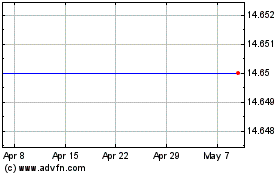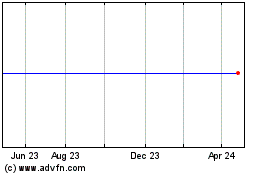Prothena Receives FDA Fast Track Designation for PRX012, a Next-Generation Anti-Amyloid Beta Antibody Under Investigation for the Treatment of Alzheimer’s Disease
April 26 2022 - 8:30AM

Prothena Receives FDA Fast Track Designation for PRX012, a
Next-Generation Anti-Amyloid Beta Antibody Under Investigation for
the Treatment of Alzheimer’s Disease
Prothena Corporation plc (NASDAQ: PRTA), a late-stage clinical
biotechnology company with a robust pipeline of investigational
therapeutics built on protein dysregulation expertise, today
announced that the U.S. Food and Drug Administration (FDA) has
granted Fast Track designation for PRX012, a potential
best-in-class anti-amyloid beta (Aβ) antibody therapy currently
being investigated in a Phase 1 clinical study for the treatment of
Alzheimer’s disease. The FDA’s Fast Track designation program is
designed to expedite the development and review of drugs intended
to treat a serious condition, such as Alzheimer’s disease, with
evidence demonstrating the potential to address an unmet medical
need.
“We welcome the FDA’s decision to grant PRX012
Fast Track designation, which is designed to bring important new
drugs to patients sooner, and we look forward to collaborating with
the FDA to expedite the development of this investigational
next-generation amyloid beta-targeting therapy for the millions of
patients with Alzheimer’s disease and their families,” said Gene
Kinney, Ph.D., President and Chief Executive Officer of Prothena.
“We are pleased the FDA has recognized the evidence demonstrating
the potential for PRX012 to address an unmet need in the treatment
of Alzheimer’s disease. With its substantially higher binding
strength that allows for simple subcutaneous administration, PRX012
is positioned to potentially lead a paradigm shift in Alzheimer’s
treatment.”
A drug candidate that receives Fast Track
designation may be eligible for more frequent interactions with the
FDA to discuss the drug candidate’s development plan and, if
relevant criteria are met, eligibility for Accelerated Approval and
Priority Review.
About PRX012
PRX012 is currently being investigated in a
Phase 1 clinical study for the treatment of Alzheimer’s disease.
Preclinical data have demonstrated binding of PRX012 to beta
amyloid plaques and oligomers with high avidity, allowing effective
Aβ plaque occupancy at relatively lower dose ranges, optimal for
subcutaneous delivery. Preclinical data have also demonstrated
clearance of both pyroglutamate modified and unmodified Aβ plaque
in brain tissue at concentrations of PRX012 estimated to be
clinically achievable in the central nervous system with
subcutaneous delivery.
About the Phase 1 SAD Study for
PRX012
The Phase 1 PRX012 SAD study is a randomized,
double-blind, placebo-controlled study to evaluate safety,
tolerability, immunogenicity, and pharmacokinetics in healthy
volunteers and patients with Alzheimer’s disease. In this Phase 1
SAD study, healthy volunteers and patients will be randomized to
receive a single subcutaneous injection of either PRX012 or
placebo.
About Alzheimer’s Disease
Alzheimer’s disease is a fatal disease and the
most common form of dementia causing increasingly serious symptoms,
including confusion, disorientation, mood and behavioral changes,
and difficulty speaking, swallowing, and walking. Approximately 50
million people worldwide are estimated to be living with
Alzheimer’s disease or other dementias. Alzheimer’s disease is the
most common neurodegenerative disorder. There is an urgent need for
therapies that slow the progression and ultimately prevent
Alzheimer’s disease to address this global healthcare crisis.
Prothena’s Alzheimer’s disease portfolio spans next generation
antibody immunotherapy, small molecule, and vaccine approaches,
geared toward building upon first generation treatments to advance
the treatment paradigm.
About Prothena
Prothena Corporation plc is a late-stage
clinical biotechnology company with expertise in protein
dysregulation and a pipeline of investigational therapeutics with
the potential to change the course of devastating neurodegenerative
and rare peripheral amyloid diseases. Fueled by its deep scientific
expertise built over decades of research, Prothena is advancing a
pipeline of therapeutic candidates for a number of indications and
novel targets for which its ability to integrate scientific
insights around neurological dysfunction and the biology of
misfolded proteins can be leveraged. Prothena’s pipeline includes
both wholly-owned and partnered programs being developed for the
potential treatment of diseases including AL amyloidosis, ATTR
amyloidosis, Alzheimer’s disease, Parkinson’s disease and a number
of other neurodegenerative diseases. For more information, please
visit the Company’s website at www.prothena.com and
follow the Company on Twitter @ProthenaCorp.
Forward-looking Statements
This press release contains forward-looking
statements. These statements relate to, among other things, the
treatment potential, design, proposed mechanism of action, and
potential administration of PRX012; and the Phase 1 SAD study of
PRX012. These statements are based on estimates, projections and
assumptions that may prove not to be accurate, and actual results
could differ materially from those anticipated due to known and
unknown risks, uncertainties and other factors, including but not
limited to those described in the “Risk Factors” sections of our
Annual Report on Form 10-K filed with the Securities and Exchange
Commission (SEC) on February 25, 2022, and discussions of potential
risks, uncertainties, and other important factors in our subsequent
filings with the SEC. We undertake no obligation to update publicly
any forward-looking statements contained in this press release as a
result of new information, future events, or changes in our
expectations.
Contacts:MediaEric Endicott,
Senior Vice President, Corporate Affairs650-448-3670,
media@prothena.com
InvestorsJennifer Zibuda, Director, Investor
Relations &
Communications650-837-8535, jennifer.zibuda@prothena.com
Prothena (LSE:0Y3M)
Historical Stock Chart
From Nov 2024 to Dec 2024

Prothena (LSE:0Y3M)
Historical Stock Chart
From Dec 2023 to Dec 2024
